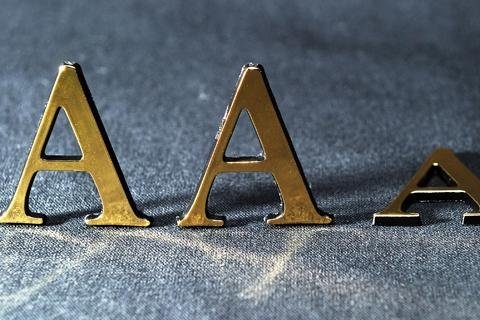The country is seeking to set up a bond rating agency to help local companies access capital markets, the Qatar central bank governor Sheikh Abdullah Saud Al Thani said.
The ratings agency will be set up jointly by the central bank and Qatar Holding, he added. It is unclear whether the new firm will attempt to compete with existing ratings agencies or aim to fill a gap in the market.
Any new agency would have to overcome skepticism from investors, said Jean-Michel Saliba, an economist at Bank of America Merrill Lynch.
"I'm not sure what would be the credibility attached to a new, small ratings agency from Qatar," he said.
Many Qatari companies, including Qatar Petroleum and RasGas, are able to attract overseas funding, meaning the benefits would be most obvious for small and mid-sized companies, he added.
In theory, the move may help Qatar to develop its capital markets and attract new funding for the next decade of development, said David Staples, the managing director at Moody's Investors Service.
"Banks continue to find Qatar to be very attractive as a risk proposition," he said.
"More broadly, the liquidity that Qatar has had has meant that Qatar has been able to self-fund."
But there is little doubt there will be a greater focus on infrastructure financing in the future, Mr Staples added.
As Qatar prepares its $125bn plan to fund development related to the hosting of the World Cup during the next three to four years, its investment demands have largely been funded by multibillion-dollar bond issuances by the Qatari government, Qatar National Bank, or its commercial lenders.
Other countries have advanced similar plans to break the monopoly of the "big three" credit ratings
Other countries have advanced similar plans to break the monopoly of the "big three" credit ratings agencies in the wake of the financial crisis when their assessment of some subprime and sovereign debt was questioned.
Qatar, the world's richest nation on a per capita basis, is rated AA by Stand & Poor's and Aa2 by Moody's and has not faced the same concerns about sovereign downgrades that have been present in Europe and the United States. Fitch Ratings does not rate Qatari government bonds.
Policymakers in other countries have leveled criticism at ratings agencies for being aligned with western interests
Policymakers in other countries have leveled criticism at ratings agencies for being aligned with western or "Anglo-Saxon" interests. S&P and Moody's are based in the US, while Fitch is dual-headquartered in New York and London.
In 2010, China's Dagong Global Credit Rating Company became the first non-western ratings agency to assess sovereign credit, immediately drawing notice for rating China as more creditworthy than the US.
Last year, as jitters around the strength of European creditworthiness mounted, members of the European parliament advocated more competition in the credit rating industry and less reliance on the "big three".
The National
19 September























































